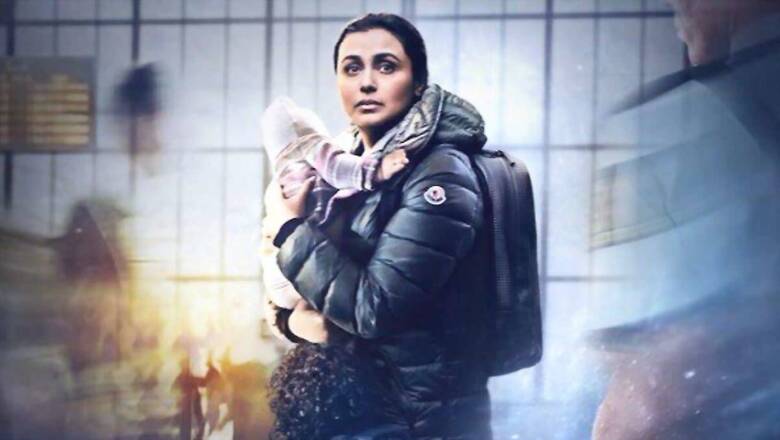
views
Earlier this month, I watched the trailer of a film called ‘Mrs. Chatterjee versus Norway’, based on the true story of Sagarika Bhattacharya and Anurup Bhattacharya. The trailer itself left me with a palpitating heart. I had been closely following the story of Ariha Shah, the infant who was separated from her parents by the German government when she was merely one and a half years old, over suspected sexual assault. To see a much older but equally traumatic case about which I had no inkling, was confusing. Was this very common in some European nations?
I subsequently ordered the book ‘THE JOURNEY OF A MOTHER’, penned by Sagarika Bhattacharya in which she has detailed her account. It was a moving, factual account of her ordeal. Finally, I stepped into the theatres to watch the film inspired by Sagarika’s story but I couldn’t bear to finish it. I am a highly empathetic person by nature and the ordeal of a five-month-old baby and a toddler separated from their parents was more than I could tolerate to see. I walked out even before the interval.
I left the theatre fuming at the injustice of it all. Let’s get one thing straight. Any person who chooses to live in a different country does so in quest of better work and life opportunities. The country allows this in order to gain a workforce so as to contribute towards nation-building. What on Earth in this entire transaction gives the host country the right to dictate how the family will exist within the confines of their house? The famous English common law case ‘The Semayne’s Case’ states as such, “The house of everyone is to him as his castle and fortress, as well for his defence against injury and violence, as for his repose.” In the cases where countries blatantly interfere and judge how people belonging to other cultures raise their children, violate something more intimate than just entering their house. They come in as uninvited guests, judge their parenting and if they deem fit, take away their child, without so much as cautioning the parents.
How can one even attempt to define what one’s progeny means to her? Reproduction is a very fundamental human impulse. Having children is what has ensured the survival of the human species. Many psychological studies have indicated that initially when we are attracted to the opposite gender, we subconsciously explore their suitability to produce children with us. I daresay that most people who choose to have children have painstakingly planned the next 20-25 years of their life with their child/children as an important stakeholder, as the focal point of their lives.
What gives any ‘national’ agency the moral authority to completely change the course of someone’s life? In Sagarika’s case, a child belonging to a completely different culture was taken away from her parents because according to the Norwegian child welfare agency’s limited understanding of parenting, the child’s own parents were incapable as parents. This was done following a ten-week observation on more than a dozen counts after complaints that her elder son was reticent. Along with a two-year-old son, an almost one-year-old daughter was also taken away from them. The infant daughter was still breastfeeding. This was done without any warning. The parents never even imagined that if they did not raise their children in an exact Norwegian fashion, they risked losing them!
My parenting experience is limited to only two years, but even I am well aware of the importance of breastfeeding and the reality of postpartum depression. World Health Organisation (WHO, headquartered in Europe itself) recommends six months of exclusive breastfeeding followed by one and a half years more, if possible. I am quoting from the WHO website which says, “Breastmilk is the ideal food for infants. It is safe, clean and contains antibodies which help protect against many common childhood illnesses. Breastmilk provides all the energy and nutrients that the infant needs for the first months of life, and it continues to provide up to half or more of a child’s nutritional needs during the second half of the first year, and up to one-third during the second year of life. Breastfed children perform better on intelligence tests, are less likely to be overweight or obese and less prone to diabetes later in life. Women who breastfeed also have a reduced risk of breast and ovarian cancers.”
Now imagine a scenario. A mother, who is not even one year postpartum, who is a breastfeeding mom and has been taking care of her toddler and home, practically alone, is suddenly detached from both of her children, without a warning, without a chance to improve (if she needed improvement according to the system she was in), without any system in place for her to supply pumped milk for her infant. For the parents, there is no say in the matter of how the child will be raised. The probability of postpartum depression is completely ignored and no rehabilitation for the same is provided. It is so bizarre. Why is this system, which shows an utter lack of application of mind, still in place? And there are several children separated from their parents like this?
Proximity to parents in early childhood is believed to be a very important factor that helps foster the cognitive and non-cognitive growth of babies. Many studies have shown that the absence of parents in early childhood negatively affects children’s development in physical fitness, behaviours, and academic performance. It is not even fathomable what must have gone through the mind of a two-year-old to be plucked out of one system and inserted in another without warning, preparation, or acclimatization. If I have to take a week-long vacation with my two-year-old, I start mentally preparing her days in advance. And here, a toddler is separated from his parents within minutes. It’s as tragic as losing your parents in a car crash.
One wonders how this government-sanctioned abduction can happen in a so-called first-world country. But one doesn’t have to look too deep into the past to find that feelings of racial and cultural superiority run deep in the mindset of the people in these places. How else would you explain the plans for the recreation of a 1914 ‘human zoo’, part of the celebrations of 200 years of the Norwegian Constitution and funded by the Government of Norway, to the tune of almost one million Norwegian Kroner? This zoo was originally maintained in 1914 and called Kongolandsbyen where 80 Congolese citizens lived for five months and faced the voyeuristic eyes of the citizens of Norway. Norway is one of the counties that has, at one time, reaped enormous benefits from the triangular transatlantic slave trade. I was taken back to the thoughts of this zoo when I saw Rani Mukherjee struggle with home and baby chores while members of child welfare sat there and made notes about her. This is what the superiority complex does. It makes one believe they are better compared to others without any reliable meters of comparison.
In a scary irony, there is no indication that the foster care system is, at all, better at raising children than the anathematised parents at home. In fact, there are many claims that children in such systems are isolated and sometimes even abused. In a shocking revelation in the BBC series Our World, season 12 episode called Norway’s Silent Scandal, it came to light that in April 2018, a respected Norwegian child psychiatrist was convicted of downloading thousands of images of child pornography. He had served as an expert on Norway’s controversial child protection system and had taken decisions on the issue of whether children should stay with their parents or be removed from them. In all, there were more than two lakh images of children, more than 4000 hours of video. The episode shows that during his trial, the psychologist trivializes the issue of downloading the videos. Another psychologist defending him states that not all those downloading such content are actually abusing children. The defending psychologist states that decisions on child custody should be taken based on evidence and not on ‘moral panic’. The cultural differences are clear as day in the views of these psychologists. Morality plays a very big role in Asian culture, and cultures that function solely based on flawed analytics have put systems in place to dictate good and bad parenting to families who have relocated to these nations. One is stunned by watching this episode.
By all means, we must make the world a better place for children. However, it is idiotic that some first-world countries think that the best way to do this is by suddenly separating parents from children, completely isolating them from any exposure to the parents as if they are radioactive elements or mass shooters harbouring deadly weapons. If any agencies find that a family’s dynamic is not as per the ‘ideal Norwegian dynamic’, the family may be warned and deported if they fail to comply. You just cannot break apart a family in order to ensure your culture is followed. This is the worst form of cultural imposition.
In the words of Dr. Gabor Mate, the celebrated psychologist, “In a nutshell, if kids get what they need in early childhood, they are going to be okay, (set, in a good way). If they don’t get what they need in early childhood, for whatever reason, they are going to have great challenges.”
I would strongly state that parental proximity and growing up in a familiar culture is a very important need during early childhood. Isn’t it commonsensical? As a country, we need to fiercely protect baby Ariha Shah and other such Indian babies who have been wrongfully separated from their parents.
Shraddha Pandey is Additional Superintendent of Police, East Medinipur, West Bengal. The views expressed in this article are those of the author and do not represent the stand of this publication.
Read all the Latest Opinions here












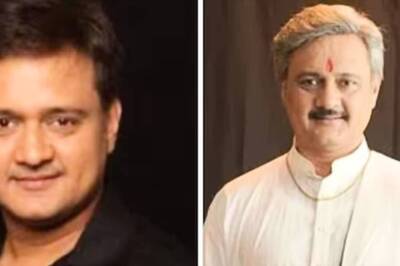


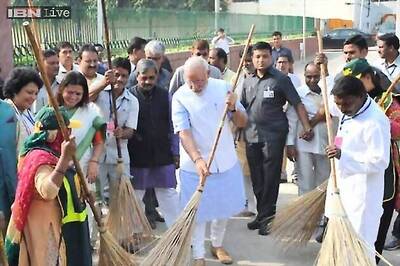

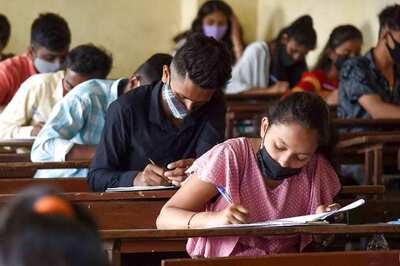
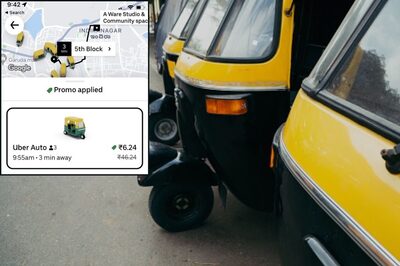
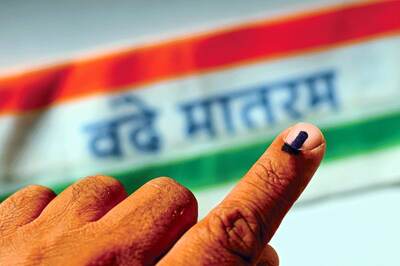
Comments
0 comment